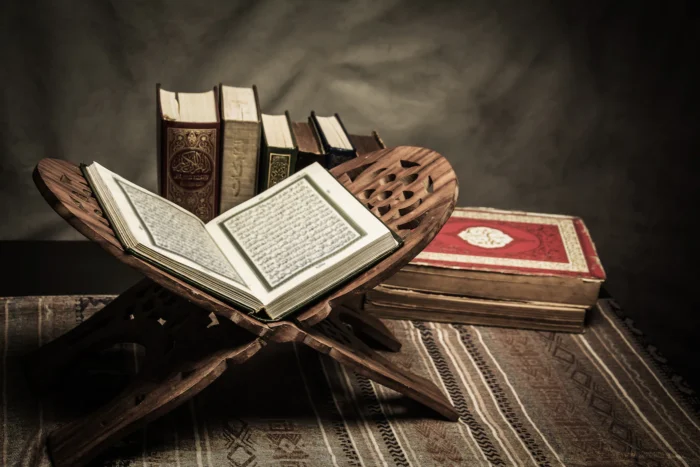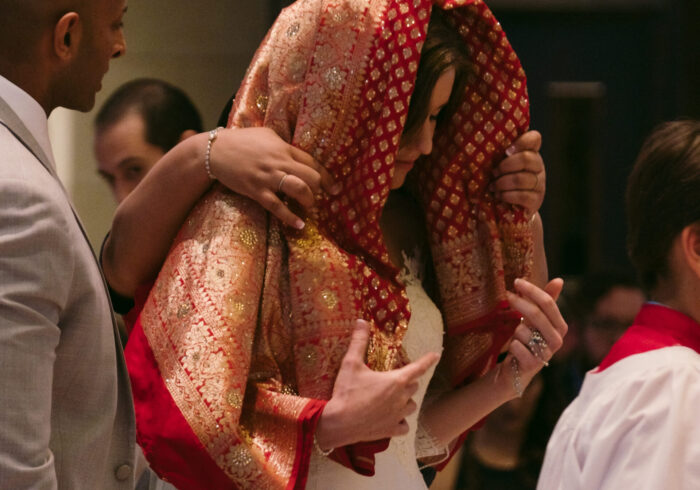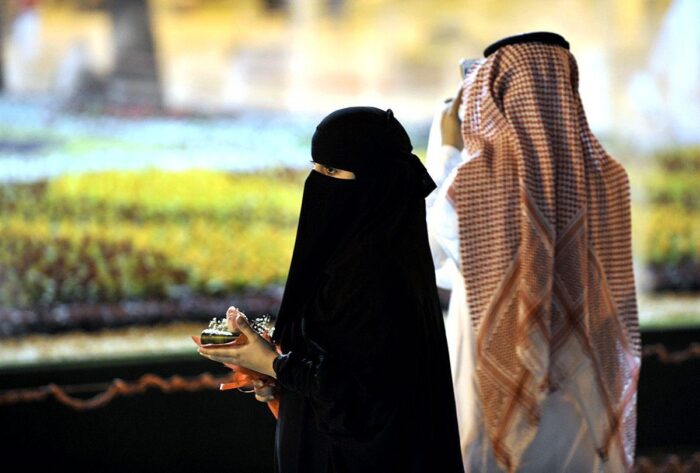
Interracial and intercultural relationships have become increasingly widespread in the Muslim community globally.
As a peaceful religion, Islam promotes unity and inclusivity, making the acceptance of diversity and interracial marriages highly encouraged in the community.
The Holy Qur’an promotes the importance of accepting people from different backgrounds with open arms and encourages diversity.
Throughout this article, we’ll look at the Islamic perspective on interracial marriage and how Islam supports inclusivity and diversity. So, keep reading to explore the beauty and wisdom behind interracial marriages in Islam.

Discussion of Interracial Marriage in Islam from the Prophetic Era to the Present
Interracial marriage is a union between individuals from different racial and ethnic backgrounds. From the earliest days of Islam during the Prophetic era to the present, the concept of interracial marriage has undergone evolving discussions:
- Islamic principles
- Against Discrimination
- Prophet Muhammad’s example
- Islamic scholars’ views
- Interfaith marriages
- Common values and beliefs
- Legal aspects
Islamic Principles
Islam preaches the idea of equality among all human beings. Almighty Allah has created all human beings equal. Thus, the teachings of Islam strongly support the notion of interracial marriage as it contracts the idea of racism and breaks down the barriers between different cultures.
The Quran quotes:
“O humanity! Indeed, We created you from a male and a female, and made you into peoples and tribes so that you may ˹get to˺ know one another. Surely the most noble of you in the sight of Allah is the most righteous among you. Allah is truly All-Knowing, All-Aware.” (Surah Al-Hujurat 49:13)
This verse of the Quran emphasizes that everyone is equal in the eyes of Allah. Thus, individuals’ color, culture, or background should not become a hurdle in forming relationships.
Also, Abu Huraira reported that the Messenger of Allah, Prophet Muhammad (peace be upon him) stated,
“If someone proposes marriage to you whose religion and character satisfies you, then you should accept it. If you do not do so, there will be trials on the earth and the spread of corruption.” (Sunan al-Tirmidhī 1084). (Sahih according to Al-Albani)
Pro Tip: Looking for a Muslim bride or groom from a different culture or region? Don’t forget to check Noble Marriage, one of the best free muslim marriage sites in the USA.
Against Discrimination
Islam is a religion that condemns racism and discrimination in all its forms. The concept of “ummah” in Islam encourages Muslims to treat all individuals with respect and fairness, regardless of race or ethnicity.
The Quran teaches that all humans are equal in the eyes of God and that the only criterion for superiority in Islam is piety. Therefore, Muslims need to avoid discriminating against people based on their skin color or ethnicity, especially in the context of marriage.

Prophet Muhammad’s Example
Prophet Muhammad (peace be upon him) showed his followers how to implement the principles of equality and respect for diversity. He set a precedent of marrying women from different backgrounds, including Arab, Jewish, and Coptic women.
Some of the wives of the Prophet Muhammad were not from his tribe or from his family, such as Maria, who belonged to the Coptic Christian, and Safiyyah, who belonged to the Jewish community.
Thus, Prophet Muhammad’s example shows that racial and cultural diversity is important to Muslim communities, showing that interracial marriage is okay.
Islamic Scholars’ Views
Islamic scholars have generally supported interracial marriages under certain conditions. They emphasize the importance of practicing Islam, sharing common values and beliefs between partners, parental consent, and mutual love and respect.
Imam Zayn al-‘Abideen, one of the later Imams from the Ahl ul-Bayt, took an African woman as his wife to break down racial barriers in Arab society and promote integration. His efforts in educating and freeing 100,000 African slaves also influenced the acceptance of Islam in Africa.
Moreover, Imam ‘Ali’s funding for liberating thousands of slaves came from his agricultural endeavors, which he dedicated to the well-being of the poor.
Interfaith Marriages
Muslim men are legally allowed to marry women, Christians, or Jews, with certain conditions [Surah al-Maidah 5:5]. However, Muslim women are generally required to marry Muslim men due to their unique responsibilities in a family [Surah Al-Baqarah 221, Surah Al‑Mumtahanah 10].
However, towards the end of the prophet’s life, his attitude towards interfaith marriage changed with the revelation of specific restrictions.

Common Values and Beliefs
The Prophet Muhammad (peace be upon him) taught that the best marriages are based on mutual respect, love, and shared values, not community. Throughout Islamic history, there have been successful interracial marriages, such as the marriage of Bilal ibn Rabah, a black man, to a woman from the Quraysh tribe.
Legal Aspects
In the Islamic faith, the legal requirements for marriage are based on the country’s laws. There are generally no racial or ethnic restrictions since Islam teaches the equality of all human beings.
Muslim-majority countries usually recognize the marriage contract (Nikah) as long as it meets the country’s legal requirements. This means that interracial marriage is accepted in Islamic countries as long as the necessary legal conditions are met.

Is interracial marriage a sin in Islam?
As long as both partners are Muslim, interracial marriage is not a sin in Islam. According to the Quran, Muslim men are encouraged to marry Muslim women but are also permitted to marry women from Jews and Christians. In contrast, Muslim women can’t marry non-Muslims.
There is no mention of race or ethnicity in the Quran; thus, interracial marriages are not discouraged or prohibited in Islam. Yet, cultural and societal attitudes surrounding interracial marriages can vary and may influence how the individuals and their families view the marriage.
Is interracial marriage legal in Saudi Arabia?
Interracial marriage is legal in Saudi Arabia, but certain regulations must be followed by those who choose to marry outside their nationality. These regulations can differ depending on the nationality of both parties.
For example, if a Saudi Arabian man wishes to marry a non-Saudi Arabian woman, he must obtain special permission from the Ministry of Interior.
This permission includes a background check on the non-Saudi Arabian woman, including her medical, educational, and financial status. Also, the couple must prove their ability to support themselves financially.

Interracial Marriage in Islam: Embrace Diversity and Build Strong Relationships
Islam promotes love and unity regardless of an individual’s race, origin, or ethnicity. Embracing diversity is a core theme in Islamic literature and encourages people to develop strong interpersonal relationships based on mutual understanding and respect.
As a religion with diverse followers, the Quran underlines the importance of accepting people from different backgrounds. Islam views interracial marriage as an opportunity for individuals to celebrate differences and promote the beauty of unity in diversity.
By understanding the Islamic viewpoint on interracial marriage, we can foster interfaith relationships, respect other cultures, and promote tolerance.






